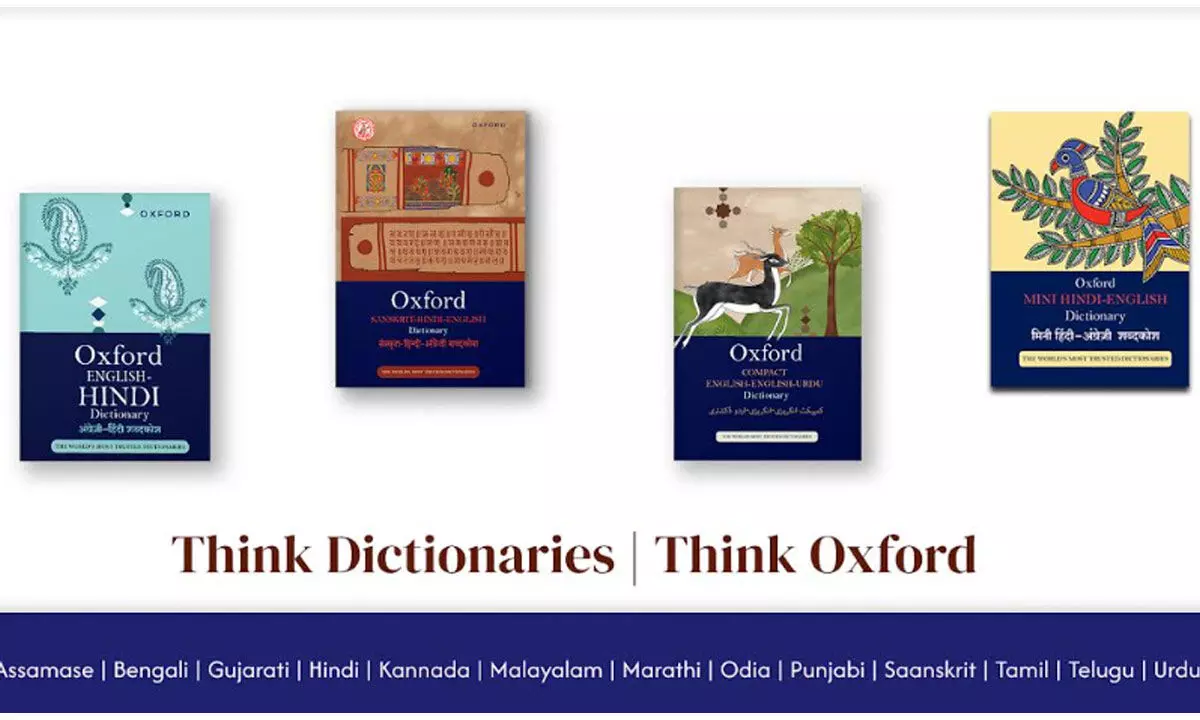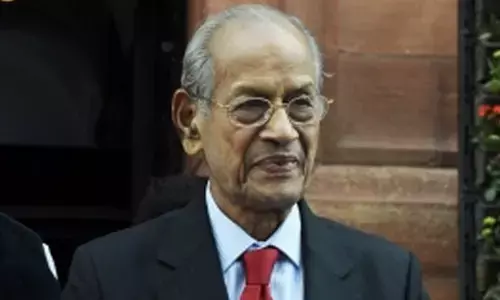Oxford University Press adds 13th Indian language to its dictionary portfolio

Launches trilingual Sanskrit-Hindi-English dictionary in partnership with Uttar Pradesh Sanskrit Sansthanam (UPSS)
The Union Cabinet, last week, expanded the list of India’s ‘Classical Languages’ to 11, by including Marathi, Pali, Prakrit, Assamese, and Bengali, alongside Tamil, Sanskrit, Telugu, Kannada, Malayalam, and Odia. Several steps have been taken by the Ministry of Education to promote Sanskrit, which gained its ‘Classical’ status in 2005. The Oxford University Press (OUP) contributes to this vision of promotion of Classical languages by announcing the launch of a trilingual Oxford Sanskrit-Hindi-English dictionary today for the purpose of preserving and making Sanskrit language accessible to learners of Sanskrit across the globe. This aligns with OUP’s vision of advancing knowledge and learning in unison with the Ministry of Education at the same time increasing the number of languages covered in the bilingual dictionaries India portfolio to 13 (which includes 9 Classical Languages). Oxford dictionaries are now available in Sanskrit, Bengali, Assamese, Kannada, Malayalam, Odia, Tamil, Telugu, Marathi, Gujarati, Punjabi, Urdu, and Hindi.
This new Oxford Sanskrit-Hindi-English dictionary includes over 25,000 words carefully chosen for the learners of Sanskrit keeping in mind the relevance of words keeping in mind the vision that every Sanskrit student would be conversant and fluent in Simple Standard Sanskrit in ten years from now.
This dictionary was published in collaboration with Uttar Pradesh Sanskrit Sansthanam (UPSS). Based in Lucknow, UPSS is a prominent institution dedicated to the promotion, preservation, and propagation of Sanskrit language and culture.
Announcing the launch of the Sanskrit dictionary, Sumanta Datta, Managing Director, Oxford University Press India said, “Oxford University Press is dedicated to the preservation and enrichment of languages, fostering a global commitment to linguistic diversity, and knowledge dissemination. This trilingual dictionary represents a significant milestone in our commitment to promoting language learning and our cultural heritage. It will be a valuable resource for students embarking on the journey of learning Sanskrit, in keeping with the NEP 2020 and NCF 2023 guidelines. Oxford Dictionaries are an important part of OUP's publishing history and rich legacy, making us the world's leading dictionary publisher. Published in over 50 languages, Oxford dictionaries have been a trusted resource for millions of language learners worldwide."
Additionally, OUP announces the release of three other dictionaries: Compact English-English-Urdu Dictionary, Mini Hindi-English Dictionary, and English-Hindi Dictionary. Earlier this year, OUP has launched the English-English-Assamese Dictionary and the Mini English-Bengali Dictionary. OUP has been a trusted partner to various state governments and departments, including those of Andhra Pradesh, Telangana, and Bihar, providing bilingual dictionaries that promote second language learning through the learners’ mother tongues.
Datta added, "OUP has been preserving and promoting linguistic knowledge and understanding for millions of language learners, students, educators, and general readers in India for over 100 years. The importance of multilingualism in a diverse country like India, along with the emphasis placed in the New Education Policy 2020 on the three-language formula for school students, serves as the primary motivation for OUP India to publish bilingual dictionaries in Indian languages. It is noteworthy that Oxford Dictionaries are now available in thirteen languages, covering nine of the eleven Indian classical languages.”










